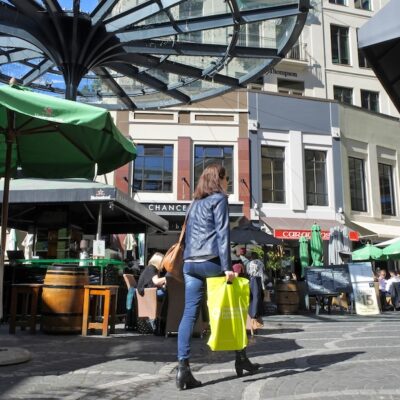Narrowing the gap between the Arctic and the shopping cart
New Zealanders are gradually making more sustainable lifestyle changes that are easy and save money but those that cost more have not taken off according to Colmar Brunton’s ‘The Better Business Report 2012’.
727
New Zealanders are gradually making more sustainable lifestyle changes that are easy and save money but those that cost more have not taken off according to Colmar Brunton’s ‘The Better Business Report 2012’.
Jacqueline Ireland, chief executive officer of Colmar Brunton said Kiwis are following the lead of their global counterparts and increasingly unwilling to pay a premium for eco-friendly / sustainable products and services.
“We’re prepared to recycle and be more energy efficient at home but not quite ready to buy organic foods or offset carbon on flights en masse. We are seeing purchase behaviours changing over time, albeit slowly,” she said.
‘The Better Business Report 2012’ is the fourth of an on-going trend monitor around sustainable issues from a consumer’s point of view, formerly known as ‘Better Business Better World’. It investigates consumers’ perceptions of sustainability and how it is impacting on people’s behaviours and choices.
The top five categories making inroads are: energy/power, fuel, cosmetics/personal care, fast food and technology and communications.
While most Kiwis want to do the right thing with 73 percent mentioning at least one green factor when making a purchase decision, their choices are ultimately impacted by a variety of factors.
Unsurprisingly, 94 percent of us are motivated by price, 88 percent by quality, 81 percent by taste/performance and 76 percent by a known/trusted brand. Locally grown is the biggest green motivator at 59 percent followed by an earth friendly product at 42 percent, earth friendly packaging at 32 per cent and organic at 17 percent.
Jacqueline Ireland believes it is a long line from the Arctic to the shopping cart.
“We’re seeing that macro issues and good marketing can shift issues to be more personally relevant but generally speaking proximity is the key and often a pre-requisite in capturing attention, persuading and motivating behaviour.
“We know most consumers want to have all the facts about sustainability so they can make better, more informed decisions.”
However, only a miserly 15 percent feel well informed on issues relating to sustainability. And only one in three feel businesses are giving them enough information about their social and environmental practices.
A whopping sixty-seven percent of Kiwis could not name a global green brand, of those that could Meridian came out on top followed by ecostore, Air New Zealand, Toyota and The Body Shop.
For brands seeking to carve out a space around innovation and leadership, sustainability is a powerful signpost. Fifty-eight percent of Kiwis agree that only the most progressive and innovative businesses take sustainability seriously.
Brands that persist with wasteful, irresponsible ways and inaccurate claims risk significant backlash. Ninety-seven percent of consumers think they have a right to know where a food product comes from. Ninety-four percent get annoyed when products try to pass themselves off as greener than they really are and 96 percent get annoyed when products are positioned as healthier than they really are.
‘The Better Business Report 2012’ survey captured 1004 consumers online, representing a national representation of the total population in terms of age, gender and location.
Colmar Brunton’s top five tips to be a leader in sustainability
1. Start from the heart
• Authentic sustainability is hardwired into the future planning of the business and across both internal and external touch points.
2. Tell your story
• The issue of sustainability is important, and people want to know more about what businesses are doing – share your journey and experiences, invite them in. Keep it simple, honest, transparent, and don’t greenwash or overstate your credentials.
3. Be a leader
• Sustainable businesses are successful businesses – innovative, clever, efficient and profitable, as well as minimising their footprint. Consumers are looking for leaders to show the way.
4. Make it positive
• A focus on positives and rewarding good behaviour is more motivating and appealing than highlighting the negatives – 70 per cent of consumers say they have a better opinion of businesses that reward customers for choosing sustainable options with discounts or special benefits.
5. Make it easy and cost neutral
• Find out what your target customers value, then do it cheaper, easier, better. Add sustainability on top and it’s a no brainer. 79 per cent say they are prepared to play their part and do the right thing – as long as it is easy and does not cost them more.





